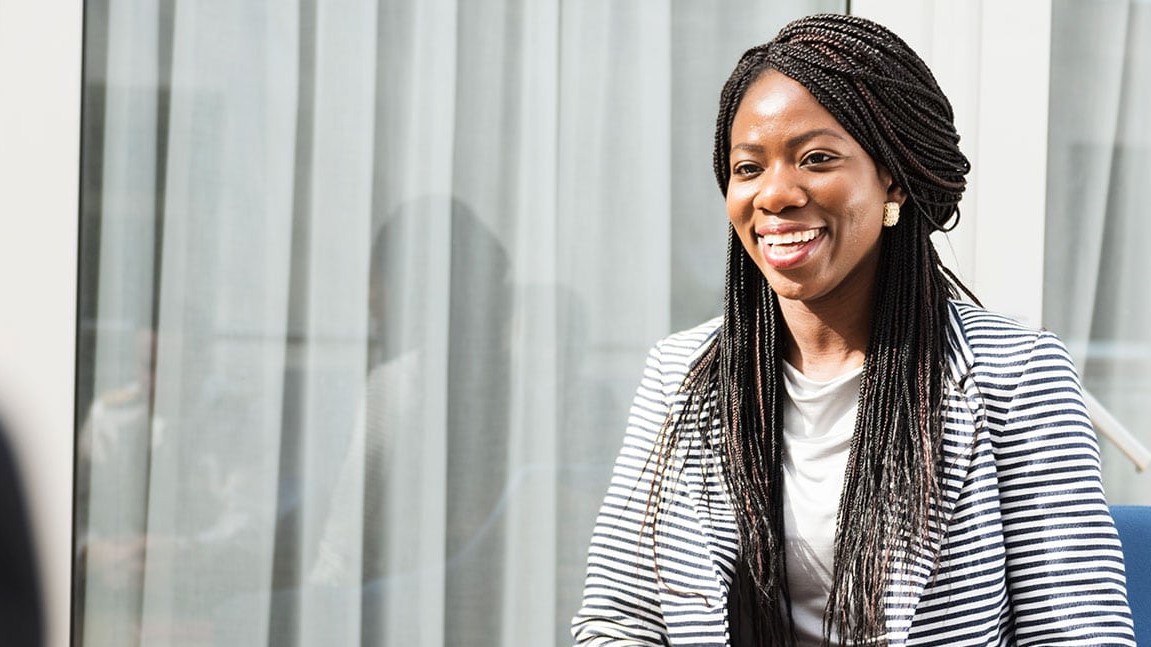Published 08 March 2021
At DE&S we aim to break down barriers women face to reach their full potential. To mark International Women’s Day 2021, our Gender Champion, Jo Osburn-Hughes talks about why gender equality is so important.
Share this story
During this last year change has felt like an everyday occurrence and there was certainly nothing normal about 2020 for both work and home life. We have all been tested in ways that we never expected. I certainly was not ready to become an expert in GCSE physics, or for that matter become a sports coach, or take on the role of tech guru, recording and lighting technician for a virtual rock concert.
But during the lockdown and remote working I have spent less time in the car driving between home, school and work and have spent more quality time with my three teenage children, which under normal circumstances would have been limited to weekends and holidays. We have all had to adapt, and like many, I have embraced some of the new ways of working and processes, but it has required me in some cases to hit the reset button.
While I was used to working flexibly, enabled by our organisational processes, the lockdown experience has been positive in that I have felt we have been able to more openly discuss our experiences and challenges in juggling commitments; be they children, caring responsibilities or outside work commitments.
From this openness should come greater understanding, a move towards more hybrid working patterns and the potential for achieving real diversity in our workforce at all levels and functions and help to remove gender as a limiting factor in careers.
In the area of gender equality in society there have been many positive changes which did not stop at winning the right to vote for women. The Equal Pay Act in 1970 made it illegal to pay women lower rates than men for the same work, and the Sex Discrimination Act in 1975 made it illegal to discriminate against women in work, education and training. These momentous events have been the catalyst to real change across workplaces and have driven some real and positive transformations in the way in which gender is considered in our society and in organisations.
Today diversity is talked about more openly, individuality celebrated and in DE&S we have organisational polices in place to ensure we enable and encourage an inclusive culture. DE&S has invested significantly in Diversity, Inclusion and Wellbeing policies to encourage opportunities for all and set the conditions to enable everyone to achieve their potential and play an active role in our organisation. Success, however, depends on us all and a commitment from everyone to value differences, be inclusive and create a positive culture enabled through positive behaviours.
I have always been passionate about achieving greater gender diversity and equality in the organisation and in all areas of society, which probably stems from my personal background and also a drive to create more opportunities for my daughter and her generation.
Through my role as Gender Champion it is my aim to increase education and awareness of diversity and inclusion and spotlighting the conversation around gender inclusivity throughout the organisation. The role is to look not just internally at our performance but also externally at what we can learn from other sectors, academia and other government departments to further improve our approach.
This year’s International Women’s Day theme is #Choose to Challenge and is focused on not being afraid to challenge when we see or hear things which are not inclusive or are discriminatory. In this we could all play a part, and as the new DE&S Gender Champion, I see this as a key part of my role.
The signing of the Women in Defence Charter was a great step towards enabling a more inclusive organisation across Defence for women. The opportunity is now to implement those principles which ensures opportunities are open for all and that our policies and most importantly our behaviours enable everyone to deliver their best, are able to harness their potential and contribute to the outputs of DE&S.














